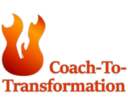

The Power of Silence!
- Jun 08th 2021
I recall the look on my peer coach’s face when in response to ‘what do you want to talk about today?’, I said I felt uncomfortable with silence when I am having a conversation. I added my tendency to finish sentences for people or offer words to ease their struggle. I had this challenge for as long as I can remember but when my professional coaching journey began, I found that this problem had to be dealt with.
As I attended coaching classes, read books and listened to live coaching sessions, I was constantly reminded to talk less and allow the client speak and reflect more but why was that difficult for me? Why was I uncomfortable with silence? In my peer coaching sessions on this, I discovered that my inner person could not bear seeing people struggle – with what to say or how to say it. To me such a struggle was embarrassing and I needed to help them through that! This was a barrier to effective coaching, I have learnt.
Why then is silence so powerful in coaching? It allows the client time to reflect on the issue being discussed and also helps the coach to pay more attention and be present. It is an important part of listening. When you offer words or phrases to the client, it might not be exactly what they want to say and it might derail their thoughts.Interjecting might also interrupt deep thinking which escalates new insights, provides clarity and options for resolving issues. Since all insights and solutions must come from the client, not the coach, he or she must be given space to properly understand the problem and discover the solution from their inner self. It is also important that the client owns the process and the outcome – this will ensure commitment to action. In an article, Wayne Farrel said silence by the client could be evidence of a thought provoking question you have asked so the client needs time and space to reflect on it. He also said that silence after a question makes a client feel listened to and so will more likely open up more to the coach. A client needs to ‘empty out’ during coaching and silence when skillfully used, makes this happen.
Dealing with my discomfort with silence was therefore a battle I had to win, to be the confident and effective coach I envisioned. I have worked on unlearning this habit by deliberately being aware of it, reviewing each conversation I have daily to see how effective I was and being genuinely interested in my client’s story. It could be a challenge when the client is taking a long time to respond to a question but I have learnt to ask if I could rephrase the question or whether they needed more time. I am proud of how far I have come with managing the urge to interject or provide answers that are not solicited and practice has continued to make me a better coach each day.
About The Author
Ihuoma is a Human Resources Generalist, a life, leadership and performance coach. She has more than 27 years HR experience in the Nigerian subsidiary of Chevron, a global company, where she rose to the position of Director, Human Resources & Medical and member of the board of Chevron Nigeria Ltd. She has more than 20 years experience as a leader, and more than 10 years as a trained 360 degrees Feedback Coach.
Program Attended with CTT: ACC
Reason for taking this program: The learn right and effective coaching skills
What worked for you: The mixture of classroom learning tied to ICC competencies, review of contextual books and peer to peer coaching
What benefits you got: A new network of coaches and support base, more confidence with my coaching
Disclaimer
The views and opinions expressed in this blog are those of the authors and do not necessarily reflect the official policy or position of Coach-To-Transformation or its parent company.









0